Schools to close in UK due to coronavirus outbreak: what you need to know - plus how to talk to your child about coronavirus
There have been confirmed cases of the virus in the UK...
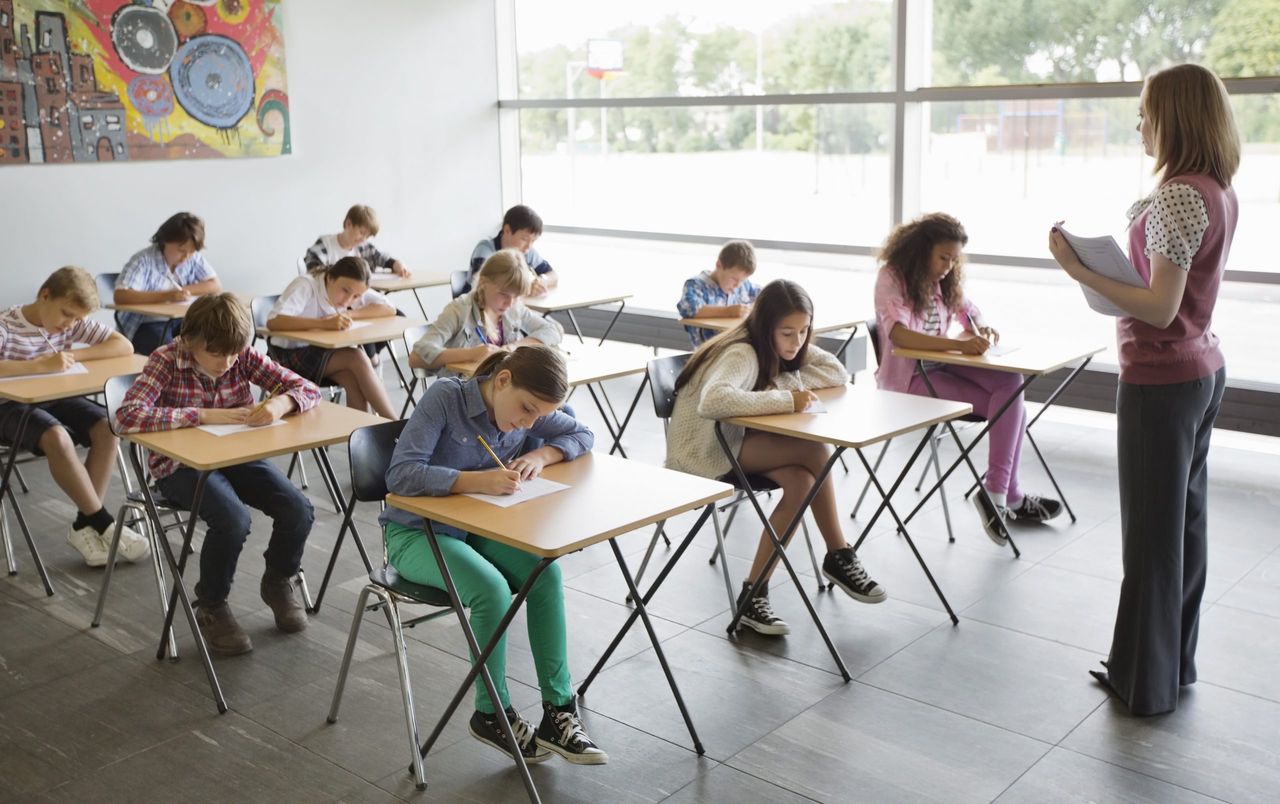
When huge global health crises hit the headlines, it's only normal to experience anxiety.
But if your child is questioning the coronavirus news, especially since it's been announced schools will close from Friday, it's easy to imagine how scary it might be for them. Hearing about scary, seemingly unending world events can be overwhelming for our kids, particularly if they aren't able to fully comprehend what it means.
It's always best to be honest with your little ones. Especially as worries over the virus seem to continually be growing and their day-to-day lives might be affected. So here's what you need to know about schools closing, plus how to speak to kids about the current outbreak and how to maintain hygiene - in the most helpful way possible.
School closures: what you need to know
Schools, colleges and nurseries in England are to join those in the rest of the UK in closing on Friday “until further notice” to try to curb the spread of coronavirus, the government has announced.
Education Secretary Gavin Williamson told the Commons, as reported by the Telegraph, “The spike of the virus is happening at a faster pace than anticipated, and it is right to consider the right measures to arrest this increase and to relieve this pressure on the health system.
“I want to provide parents, students and staff with the certainty they need … After schools shut their gates on Friday afternoon they will remain closed until further notice. This will be for all children except to those of key workers and children who are most vulnerable.”
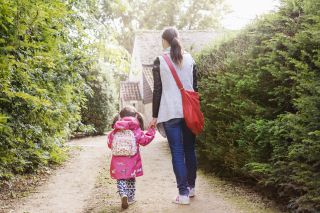
When will schools close?
As of Monday 23rd March, schools will be closed until further notice.
GoodtoKnow Newsletter
Parenting advice, hot topics, best buys and family finance tips delivered straight to your inbox.
Will exams still go ahead?
GCSE and A-Level exams will now not take place in May and June, but pupils will still get qualifications, which some have speculated may be a result of their predicted grades. However, Boris Johnson has not yet given details on whether this will be the case or not.
MORE: Things to do with kids: 44 cheap activities to keep children entertained
Am I expected to homeschool my child?
There aren't specific government guidelines on homeschooling your child, but there are plenty of handy websites and free educational resources online to help you keep little ones learning. You can see our list of the the best free educational resources online and tips for homeschooling here.
How to teach children the importance of hygiene in the midst of the coronavirus
The main advice for minimising the risk of coronavirus infection, for children and adults, is similar to that of any other virus. Dr Daniel Atkinson, GP Clinical Lead at Treated.com, explained that schools can be a breeding ground for illnesses - even without the coronavirus. "Illnesses and viruses spread easily in schools, so teaching children the importance of hygiene is important.
Showing children how to adequately wash their hands for at least 20 seconds is key, and repeating this so it sticks in the child’s mind," he said. "Keeping this habit when away from the home will help children to protect themselves from illness like coronavirus, when parents cannot be with them."
WHO has advised that washing your hands frequently, using soap and water, is an important way to stop the spread. It's an important lesson to teach your children - in the midst of the coronavirus outbreak and beyond - that handwashing after playing outside, before eating, or after they've coughed or sneezed is a good habit to maintain.

Dr Atkinson told GoodtoKnow, "Giving your child hand sanitiser gel can help to protect them too. But it’s worth bearing in mind that they shouldn’t rub their eyes immediately after applying sanitiser nor use it for anything else except hand-sanitising. For example, ingesting hand sanitiser can be extremely harmful."
The organisation has also suggested maintaining a distance from people who are coughing and sneezing, and although it's important your children know not to isolate anyone, it's good general hygiene practise.
Perhaps let your child know that it's okay to turn their head away when someone may be coughing or sneezing - especially if it's another child, who might not know to cover their mouth while they do so.
MORE: Hand washing video: are you washing your hands properly
It's also an idea to try and encourage your kids to not touch their eyes, nose and mouth too much, Dr Jonas warns - as the virus can be spread via the hands from infected surfaces.
How to speak to your children about coronavirus - without scaring them
Dr Atkinson has reassured parents that while the news might seem terrifying, it's important to remember yourself, and remind your children, that it might not be as dramatic as it may sound.
But when it comes to explaining the subject to children, it's important to not pretend it isn't happening, given how big the story has become worldwide.
He said, "While the virus spreading rapidly is unsettling, parents should remember that the vast majority of those who have been tested for Coronavirus in the UK have been confirmed to be negative, and of those that have tested positive, most have now fully recovered."
If your little ones begin to mention the coronavirus, or any worrying illness, Relate counsellor Dee Holmes says it's important to ask them how they're feeling. She recommended, "Ask them what they’ve heard about it and what specifically is making them worried."
And while it may be tempting to pretend that everything is totally fine, and that these kinds of things don't even exist, it might be better to share the reality with them - in a gentle way. "Avoid telling them that they’re being silly for worrying," Dee said. "You may think that acknowledging their fears will add fuel to the fire but showing empathy is a really important way of supporting your children."
Equally, explaining to them that the coronavirus might not be a terrifying as it seems is important. If your kids are school-age, they may well have heard all sorts of myths or exaggerations from their friends or school mates.
"You may think that acknowledging their fears will add fuel to the fire but showing empathy is a really important way of supporting your children."
Dee told GoodtoKnow, "Once you’ve acknowledged how your child is feeling, let them know the facts about the disease and dispel any myths they may have picked up. For older children you may want to look up the facts together to reassure them."
However, Dee suggested - "Keep things age appropriate. A six-year-old may not grasp the statistics around coronavirus, whereas a teenager may find these useful."
Symptoms of coronavirus to look out for
According to the World Health Organisation, the main signs of the coronavirus include:
- a high temperature
- a cough
- shortness of breath
- general difficulty breathing
Dr Daniel Atkinson urged, "Parents should familiarise themselves with the symptoms of coronavirus, as some of them are similar to the flu."
In severe cases, infection from the coronavirus can lead to pneumonia, kidney failure, and severe acute respiratory syndrome.
Normally, older people or those who have pre-existing medical conditions can be at greater risk of suffering complications as a result of the virus. WHO says, "[they] appear to be more vulnerable to becoming severely ill."
Amy is Senior Digital Writer across Woman & Home, GoodTo and Woman, writing about everything from celebrity news to health, fashion and beauty features. When she isn't obsessing over the latest dress drop from Marks & Spencer, you'll most likely find Amy out running, or with a cup of tea in hand ready to dive into a gripping new Netflix series.
-
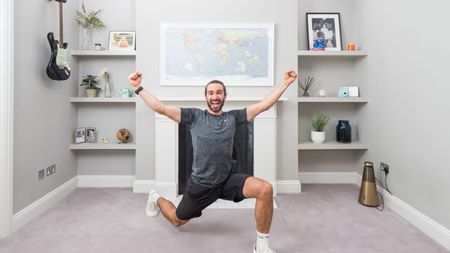 Watch Joe Wicks lockdown workouts: Where and how to watch The Body Coach’s PE sessions for children
Watch Joe Wicks lockdown workouts: Where and how to watch The Body Coach’s PE sessions for childrenFancy getting a second round of Joe Wicks lockdown workouts? Here's what the Body Coach is up to during the second lockdown...
By Amy Hunt Published
-
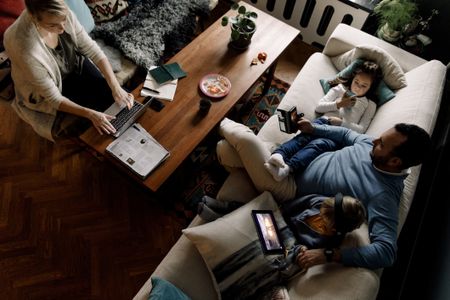 How to keep your kids entertained at home when you're self-isolating
How to keep your kids entertained at home when you're self-isolatingIt can be tricky...!
By Amy Hunt Published
-
 The best FREE educational resources online and tips for homeschooling
The best FREE educational resources online and tips for homeschoolingSchools are officially closing...
By Amy Hunt Published
-
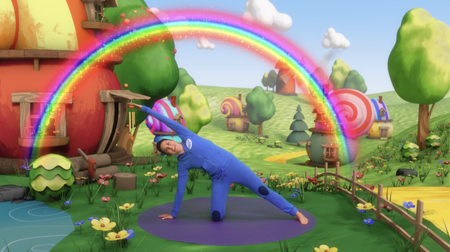 Cosmic Kids Yoga: the mindfulness app for children
Cosmic Kids Yoga: the mindfulness app for childrenBy Grace Walsh Published